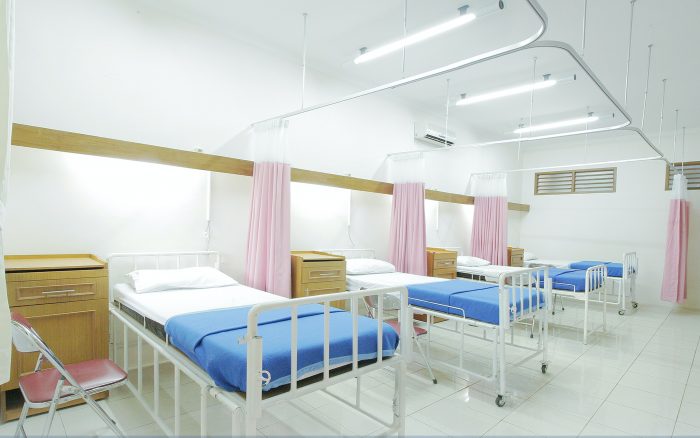RCPA Member
RCPA Member Beacon Health Options to Become Carelon Behavioral Health
On May 1, Beacon Health Options of Pennsylvania, Inc., the behavioral health Medicaid managed care organization serving members in Western Pennsylvania, is becoming Carelon Health of Pennsylvania, Inc.
In June 2022, Beacon’s parent company Elevance Health announced the launch of Carelon, a new healthcare services brand. The name Carelon is derived from the word “care” and suffix “-lon,” which means full and complete. Beacon is joining with other businesses across the nation under the Carelon brand to provide ongoing healthcare services to support whole-person health.
Provider contracts, reimbursement, policies, and points of contact will all remain the same. All existing phone numbers, emails, websites, and portals will redirect to the Carelon-branded locations with no action required from providers.
Providers with questions can call 877-615-8503.
RCPA Member Skills of Central PA to Provide Summer Employment Program for Students With Disabilities
RCPA Member Woods Services to Host Employee Engagement Symposium on February 16
Join Lydia Dawson, Erin Drummond, Marco Giordano, and Toni Pergolin as they present the Employee Engagement Symposium, moderated by Tine Hansen-Turton.
Thursday, February 16, 2023
3:30 pm – 5:00 pm EST
Virtual Event
Register Here

Description:
How do you promote workplace practices and cultures that lead to satisfied employees and improved business outcomes in the health and human services sectors? How do you draw on employees’ knowledge and ideas to improve and grow services? Our panelists will address these questions and share their best strategies for successful employee engagement. This symposium is moderated by Tine Hansen-Turton, President and CEO of RCPA member Woods Services.
Thriving Through Transformation Symposia Series:
This symposium is the second in a series of four symposia that stem from key themes in the newly released book Thriving Through Transformation: A Practical Guide to Creating Organizational Change in the Social Sector by Woods Services. For more about the book and the series, see below.
Visit here to purchase a paperback copy of the book.
Visit here to download the free digital version.
Learn more about the speakers, agenda, and registration details here.
RCPA Member Inglis House Cancels Nursing Home Sale, Citing Bigger-Than-Expected Medicaid Increases
RCPA Member Goodwill of Southwestern Pennsylvania Announces New President and CEO
The Board of Directors of Goodwill of Southwestern Pennsylvania is pleased to announce the hiring of a new President and Chief Executive Officer, Monique McIntosh. Monique becomes the eighth Goodwill SWPA Chief Executive since its founding in 1919.

Monique joins Goodwill SWPA from her most recent position as the Chief Program Officer of YWCA Greater Pittsburgh, where she has served in various leadership capacities, including Co-Interim Chief Executive Officer and Chief Administrative Officer. She currently manages organization programs and evaluation in her role as Chief Program Officer. Previous to her leadership of the YWCA, she served as Urban League of Greater Pittsburgh’s Vice President of Programs and Services. In each of these roles, she expanded the reach and effectiveness of the organization.
Monique is a member of The Forbes Fund Advisory Council and United Way of Southwestern PA Women’s Leadership Council Diversity Work Group. Monique serves on the Wilkinsburg Community Development Corporation Board, where she chairs the Development Committee and the Sixth Economic Empowerment Development Corporation Board. She also serves as an Advisory Committee member for the Homewood Community Development Collaborative and a Core Team member for the Homewood Comprehensive Community Plan, formally adopted into the city’s Comprehensive Plan. She is an Advisory Committee member for the University of Pittsburgh Community Engagement Center. Monique received her Bachelor of Arts degree from the University of Pittsburgh and a Master of Education from Penn West California.
Monique succeeds Michael Smith, who retired last fall after serving as Goodwill SWPA’s President/CEO for 20 years. She will officially begin in her new role on March 1, 2023. Monique represents a considerable step forward for Goodwill SWPA and its commitment to integrating diversity, equity, inclusion, and belonging into how they function, as the first woman and person of color to lead the organization.
Goodwill SWPA is a diversified nonprofit human service agency that serves southwestern Pennsylvania and north central West Virginia and manages several affiliate units and special-purpose entities, including Goodwill Commercial Services, Inc. and Mission Logistics, LLC. The agency operates 34 retail stores and several other businesses to help fund programs and to provide job training, education and related services to help people overcome employment barriers. The organization serves over 10,000 adults and youth annually while employing over 1,000 people with an annual budget of over $60 million.
Life After Lockdowns: RCPA Member Wellspan Philhaven Sees Increase in Mental Health Services After Stress of Past Few Years

RCPA Member Keystone Human Services Announces New Organizational Structure and Operating Model
The 2023 Pennsylvania Government Relations Power 100: RCPA Members UPMC and Woods Services Listed














